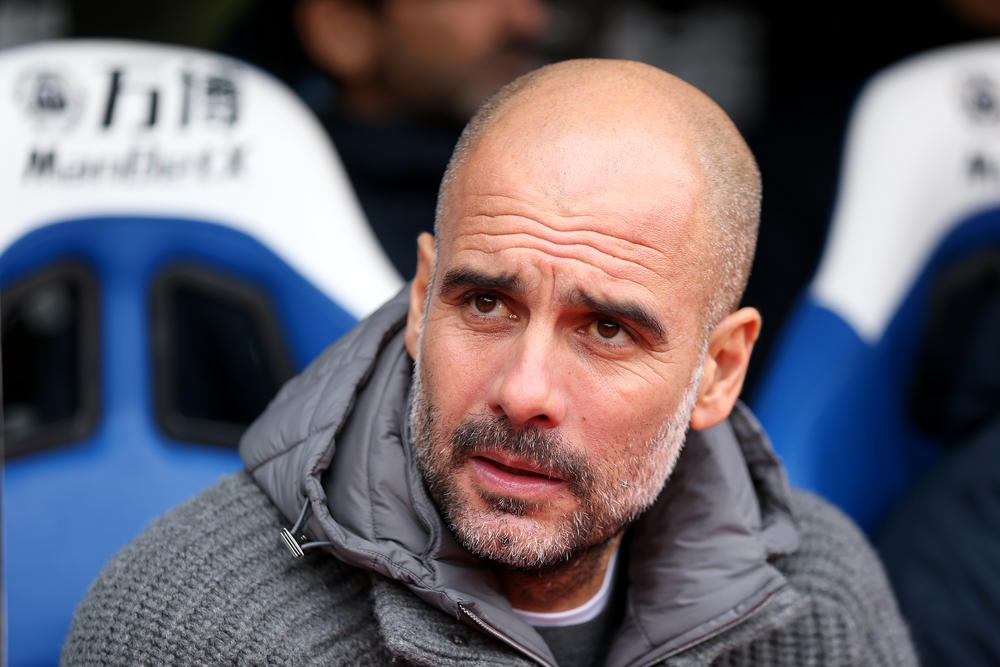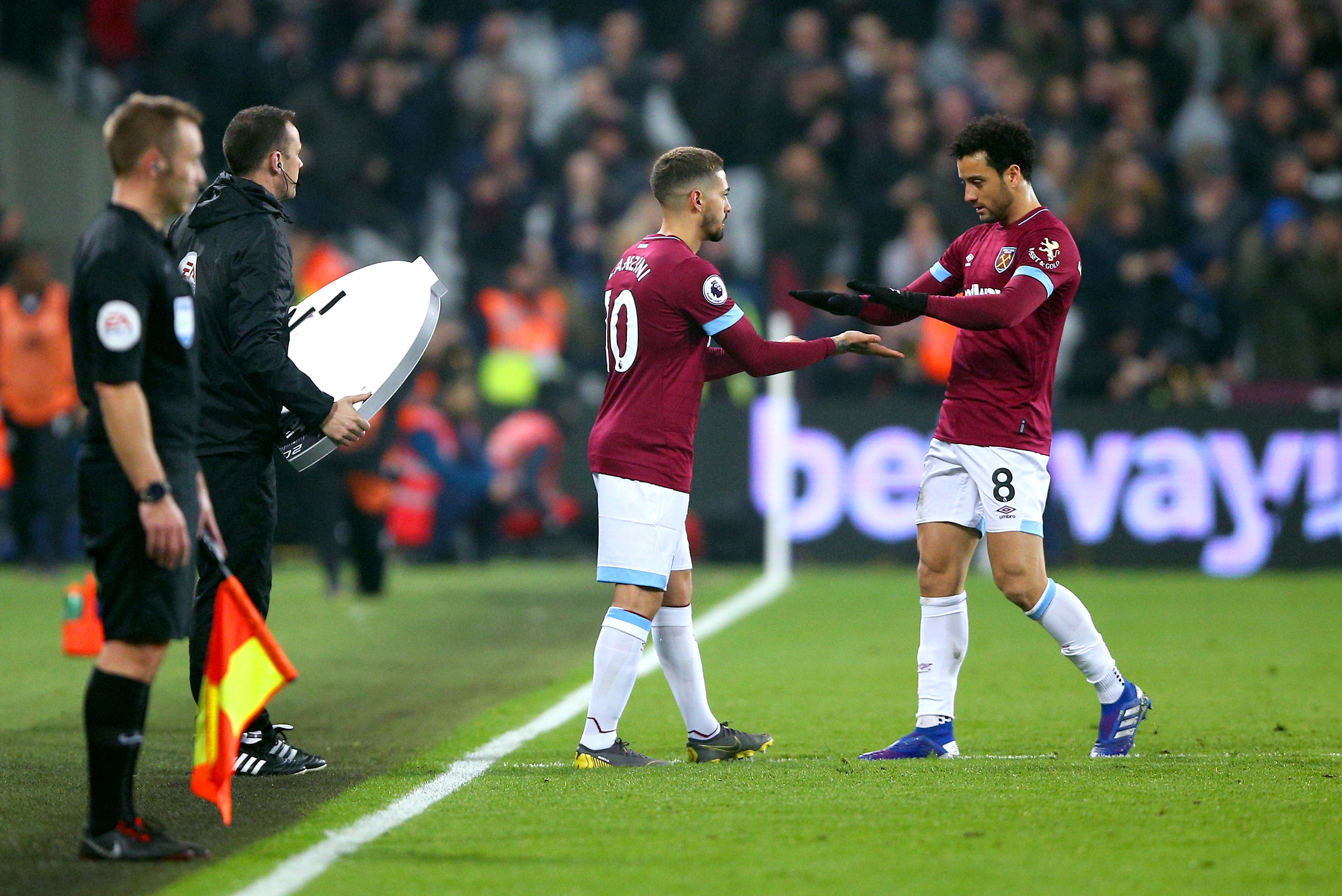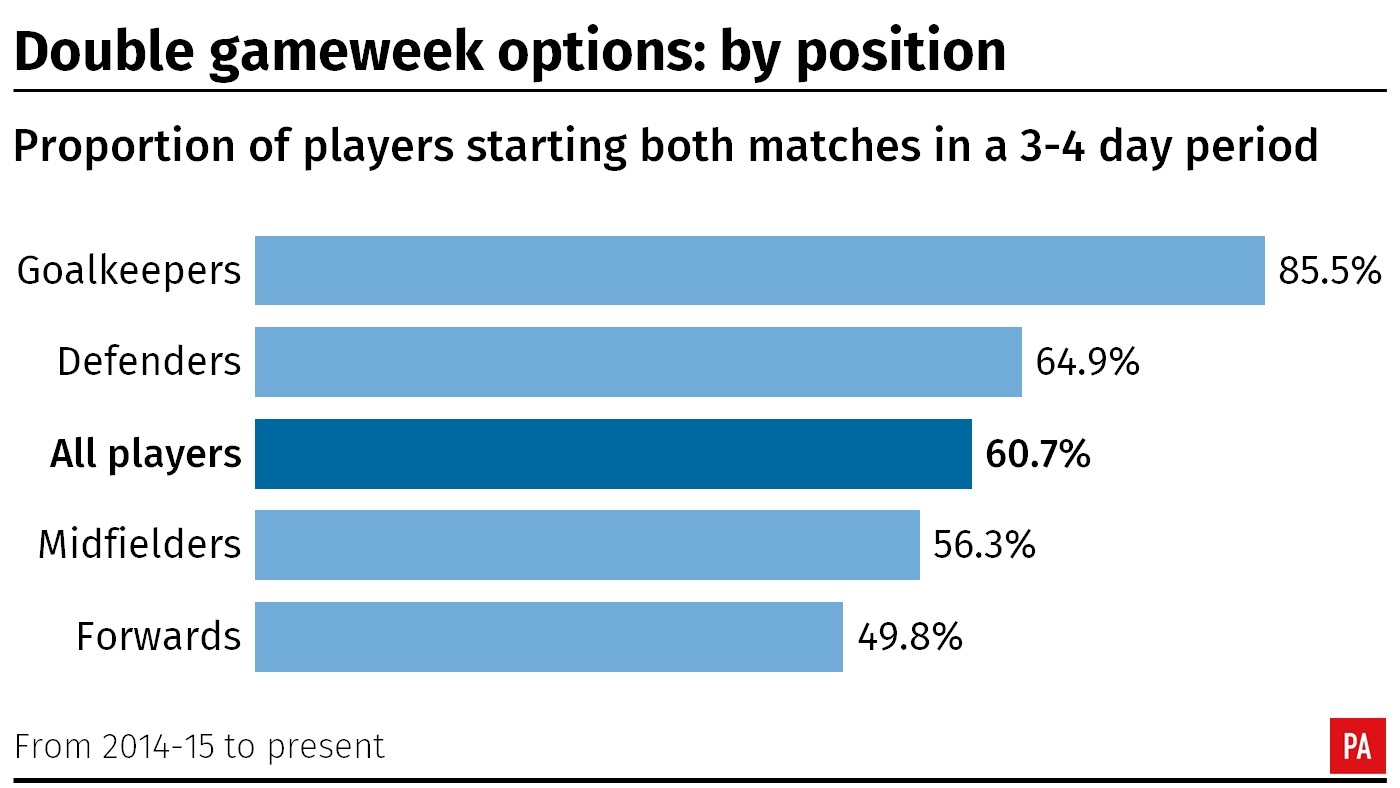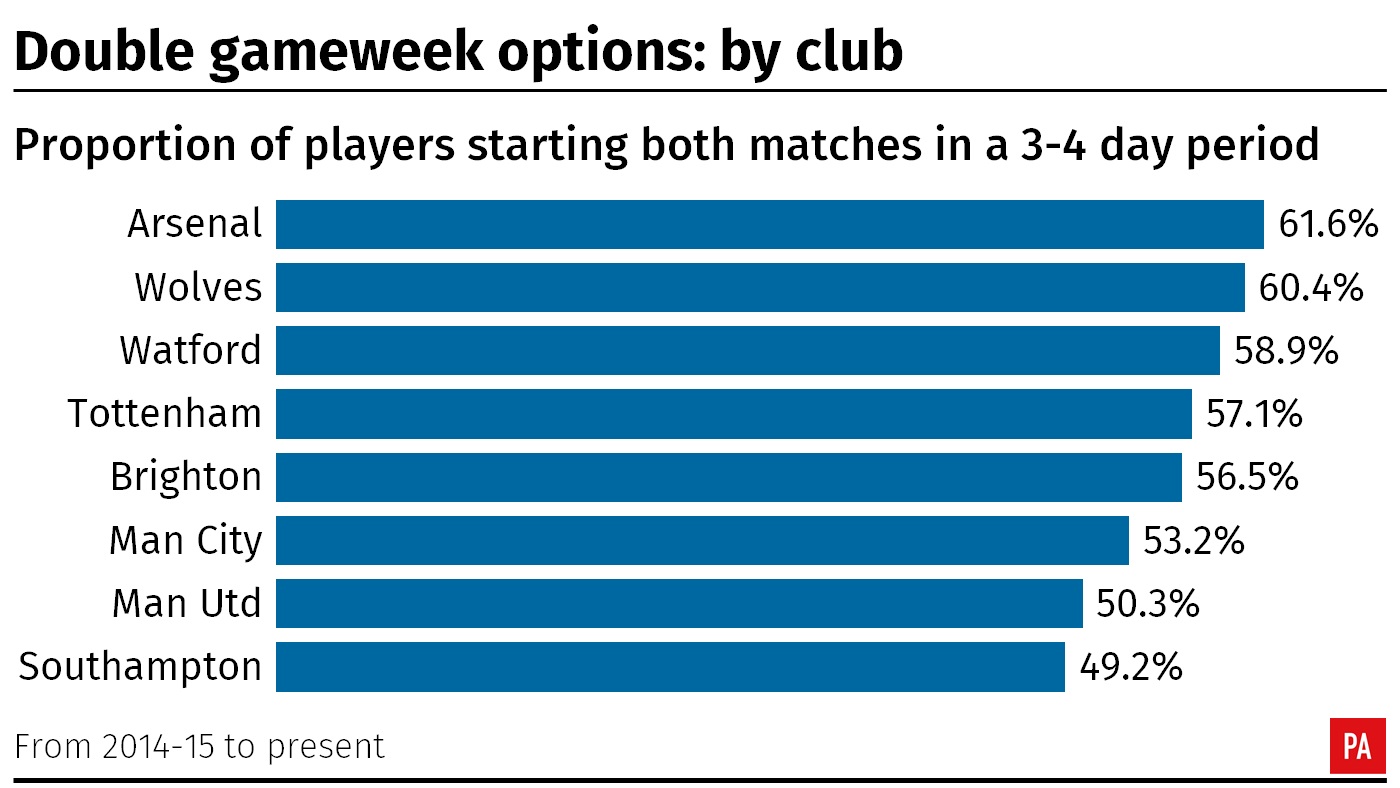How to nail the double gameweek and avoid rotation woe

The transfer deadline for the last double gameweek (DGW) of the season is approaching and with eight teams playing twice there is a strong temptation to bring some of their players in, even if it means taking a points deduction.
However, there is a risk that squads will be rotated to avoid injuries or burnout, or even that players will pick up an injury in the first game that keeps them out of the second, so just how much of an upside is there?
The Press Association has crunched the numbers from the last five Premier League seasons to work out how likely it is that a player will feature in both matches in a DGW.
How much do starting line-ups change overall?

In GW35, the eight teams who play twice have either a three or four-day gap between their fixtures, so the focus will be on intervals of this size only.
Across all players who started at least one game within three to four days of their club playing again, just over 60 per cent also started the other match and a further 16 per cent came on as a sub.
On average, this means that you can expect three in every five first-team players with a DGW to feature in the starting line-up twice, but only one in four to miss out on the second match completely.
Which playing positions should you invest in?

That overall average hides a lot of variation, and the most obvious driver of differences is player position. While around 85 per cent of goalkeepers will start both matches, this drops significantly as you move up the pitch.
Get FourFourTwo Newsletter
The best features, fun and footballing quizzes, straight to your inbox every week.
For defenders the figure is 65 per cent, or roughly two in three, dropping to 56 per cent for midfielders and 50 per cent for forwards, so if you’re planning on taking a four-point deduction to bring a striker in then bear in mind it is effectively a coin flip on whether they will start both matches.
For forwards, however, there is an additional 30 per cent chance that they will come off the bench in the game they don’t start, so only one in five will miss out on the second match completely.
Should you leave the big clubs alone?

Managers with Manchester City players in their teams have probably been frustrated by Pep Guardiola’s squad rotation this season, and the bigger clubs tend to have more options in their ranks. Overall, players at clubs finishing in the top six start both matches just 56 per cent of the time.
When it comes to getting on the pitch at all, defenders at top clubs represent the biggest risk overall and should probably be avoided – only 64 per cent feature in their side’s second game, compared to 82 per cent of their forwards.
The good news is that 63 per cent of players at clubs outside the top six – almost two thirds – will start both games and 78 per cent will get at least some playing time in the second fixture.
There is also barely any difference between these numbers when you compare mid-table sides with relegation battlers, so there is no need to delve into the division’s worst performers to find players likely to give you additional points.
Which clubs’ players should you target?

Of the eight clubs that are in action twice during GW35, Arsenal and Wolves are perhaps the safest options based on the evidence of the last five seasons. Both have seen over 60 per cent of the players who started one match in the space of three or four days also start the other.
The two Manchester clubs are far more likely to tinker with their line-ups when the fixture calendar gets congested but, surprisingly, both are marginally more stable than Southampton.
Fewer than half of the Saints players who started one match in a congested week also started the other, although it is too early to tell whether new boss Ralph Hasenhuttl has a different strategy to his predecessors.
FourFourTwo was launched in 1994 on the back of a World Cup that England hadn’t even qualified for. It was an act of madness… but it somehow worked out. Our mission is to offer our intelligent, international audience access to the game’s biggest names, insightful analysis... and a bit of a giggle. We unashamedly love this game and we hope that our coverage reflects that.

